Movie Review: 'The Many Saints of Newark'
The Sopranos sequel is more device than movie.
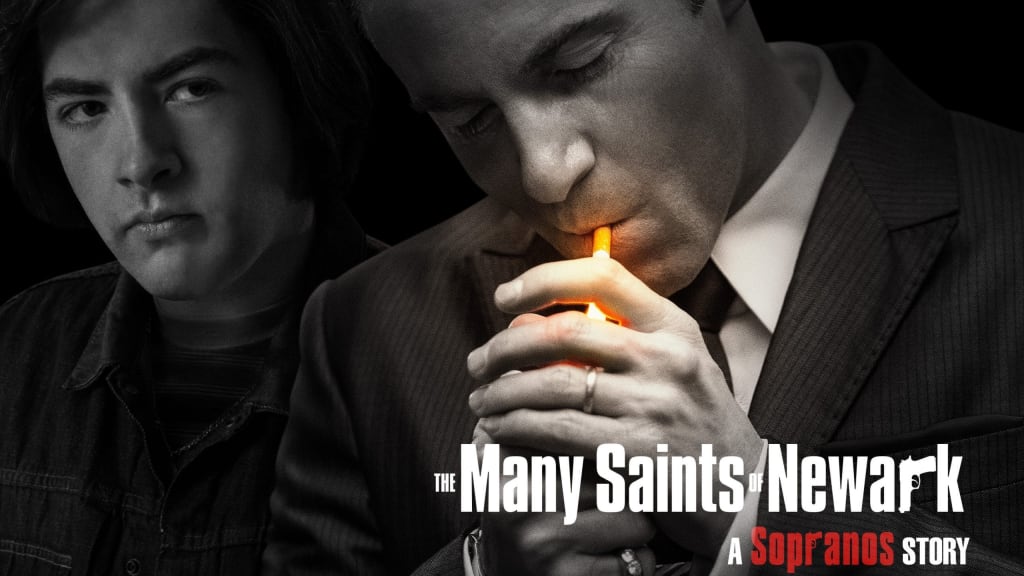
The Many Saints of Newark stars Alessandro Nivola as Dickie Moltisant, a gangster in Newark, New Jersey circa the late 1960s, running numbers and stealing trucks to resell the goods inside. Typical gangster stuff. Dickie is a high ranking member of the Soprano Crime Family, headed up by Johnny Boy Soprano (Jon Bernthal) and his little brother Junior (Corey Stoll). Dickie has his own crew of Italian stereotypes who follow his orders.
Also under Dickie’s employ is Harold (Leslie Odom Jr), an ambitious young black man who handles the numbers for Dickie in the predominantly black neighborhoods of Newark. Harold has designs on going out on his own and running his own numbers racket, cutting the Soprano Family out. The eventual conflict between Dickie and Harold will drive much of the action of the plot of The Many Saints of Newark.
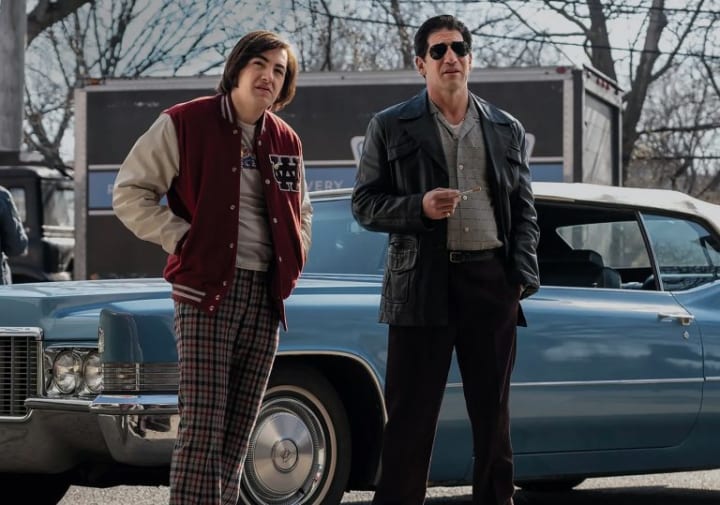
The film has numerous subplots including one about Dickie’s father, Hollywood Dick Moltisanti (Ray Liotta), having just returned from a stay in Italy with a much younger wife who doesn’t speak English. Giuseppina Moltisanti (Michela De Rossi) immediately catches the attention of the younger Moltisanti but also the eye of Harold, yet another eventual fracture point in the business friendship between Dickie and Harold.
A much more ballyhooed subplot has Dickie acting as a father figure to young Tony Soprano (Michael Gandolfini). When Tony’s father, Johnny Boy, goes to jail, Dickie becomes a guiding influence on Tony at the behest of Tony’s demanding and dramatic mother, Livia (Vera Farmiga). You might assume this is where the character who goes on to become the central figure of the Sopranos television series, learns the ropes of a life of crime but no. Dickie seems to have no interest in drawing Tony into mob life, instead encouraging him to play football in High School.
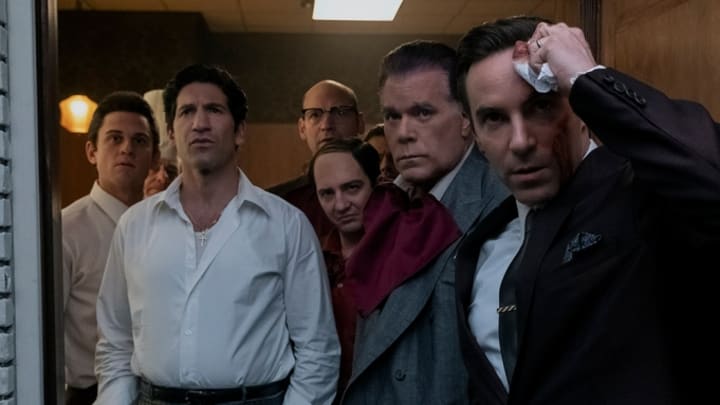
Fans of the HBO series The Sopranos will likely find a good deal of fun in seeing some of the famed figures from that show as younger men and women. That fun is quite lacking if you are someone with only a pop culture reference familiarity with the HBO series. I watched a season or two with friends who enjoyed the show but it was more of a social occasion than it was a time to seriously watch the show and that regular engagement ended at around season two. So, I know enough but perhaps not enough to get all of the Easter Eggs.
That said, as I have stated about comic book movies, or Stephen King novels, a good movie doesn’t require endless hours of homework. If the makers of The Many Saints of Newark want only to reach Sopranos super-fans they could have skipped a theatrical release altogether and just been shown on HBO. But no, The Many Saints of Newark is a theatrical and streaming feature and thus should stand alone with enough strength to appeal to any audience.
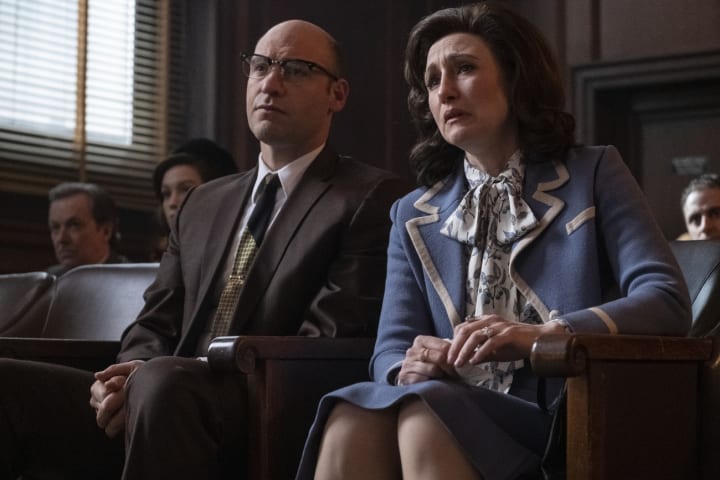
As its own standalone work of art, The Many Saints of Newark is deeply lacking. Early portions of the film narrated by the late Christopher Moltisanti, a character who was murdered on the TV show, indicate that what we are watching are a recollection of events from someone who was not there. It’s an abstract take on the past, which I imagine is an intentional way of getting around any narrative inconsistencies. Clever but also, deeply weird and off putting in how it is employed. Christopher’s narration seems to come and go at will. The narration is used to establish the gimmick that what we are watching is a story being re-told based on loose recollections.
This, it seems to me, is a way of hand waving away any criticisms of the bumbling and stumbling story. It’s all from Christopher’s recollection and so of course character motivations are lacking and the story is inconsistent. It’s an excuse to throw a lot of scenes at the wall with little concern for if they fully make sense within the story being told. Scenes arrive and end in bizarre fashion, filled with information that doesn’t further the story.
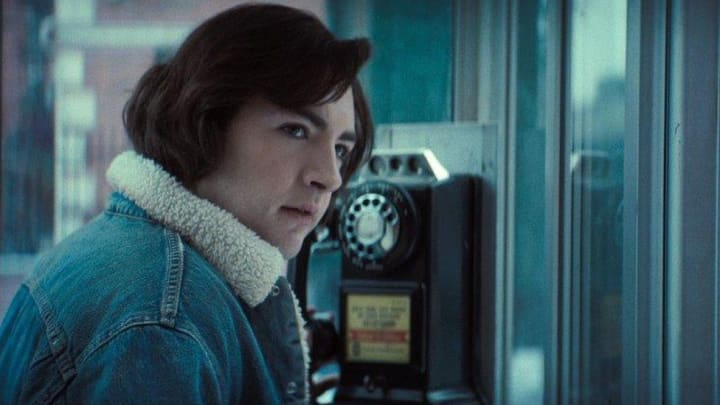
Watching The Many Saints of Newark is like sitting next to a drunk at a bar trying to tell you a story about how great his dad was even though the dad died when the kid was barely young enough to have a memory of him. He’s playing a game of telephone that’s only interesting to him and you’re tolerating it out of politeness. The thing about that is, David Chase is that drunk at the end of the bar and unlike the character of Christopher, he does have all of this information, he’s the one writing it.
Is The Many Saints of Newark a troll job? Is David Chase messing with us by employing an unreliable narrator? Or is it that Chase stumbled onto a narrative device and decided that using that device was easier than coming up with a full rich story within the universe he’s started on his TV show. We can’t know for sure, I imagine Mr Chase isn’t going to tell us either way. What I can tell you is that The Many Saints of Newark suffers for the attempt at exploiting a narrative device rather than simply telling a straightforward story.
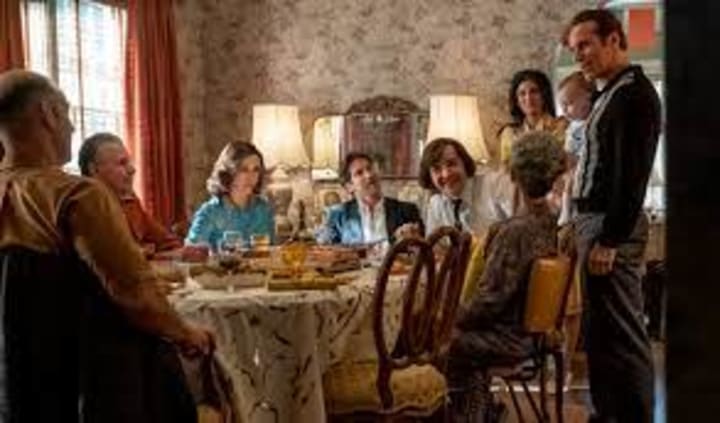
If you are hoping for a modern day gangster epic, you are likely to be disappointed in The Many Saints of Newark. The trappings of a potential epic are there, especially in the seeds of the brewing conflict between Dickie and Harold, but the execution suffers as Chase indulges in a storytelling device that intentionally or not, acts like Chase’s shield from any criticism, he can disown the story if he chooses or he can say it accomplished its aims of being a meta take on storytelling.
I get that David Chase's bit is that he screws around with the audience. The ending of the TV series, as I have read, was an elaborate con job intended to screw around with audiences who'd dedicated endless hours to watching the show and its ever unraveling plot threads. The show ends on a series of scenes set to the Journey song, Don't Stop Believin'. An abrupt cut to black during the montage left many fans scratching their heads and Chase seemingly laughing at those who tried to find deeper meaning in the song, some clue to Tony Soprano's ultimate fate.
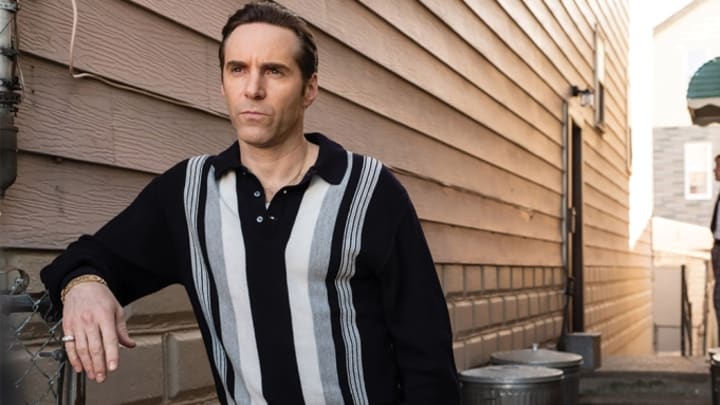
The reality, as Chase has confirmed in an interview rather recently, is that he picked the song specifically because the crew on the set of The Sopranos hated that songs. No deeper meaning, no purpose to its inclusion, it's an inside joke that isn't particularly funny once you're aware of it. The ending of The Sopranos TV show is a strong indication that David Chase is far more interested in messing with audiences than he is in delivering a satisfying overall story.
If you like that sort of elaborate prankster God stuff, knock yourself out. John Lennon was similarly famous for including nonsense lyrics in Beatles songs to mess with anyone trying to interpret his music. The difference between Lennon and Chase is that even a bizarre Beatles song is still amazing. A bizarre David Chase movie doesn't have great music to make up for the weird or even off-putting lyrics. The Many Saints of Newark ends up merely chaotic and off-putting, a mix of unrealized potential and annoying narrative trickery.
About the Creator
Sean Patrick
Hello, my name is Sean Patrick He/Him, and I am a film critic and podcast host for the I Hate Critics Movie Review Podcast I am a voting member of the Critics Choice Association, the group behind the annual Critics Choice Awards.






Comments
There are no comments for this story
Be the first to respond and start the conversation.